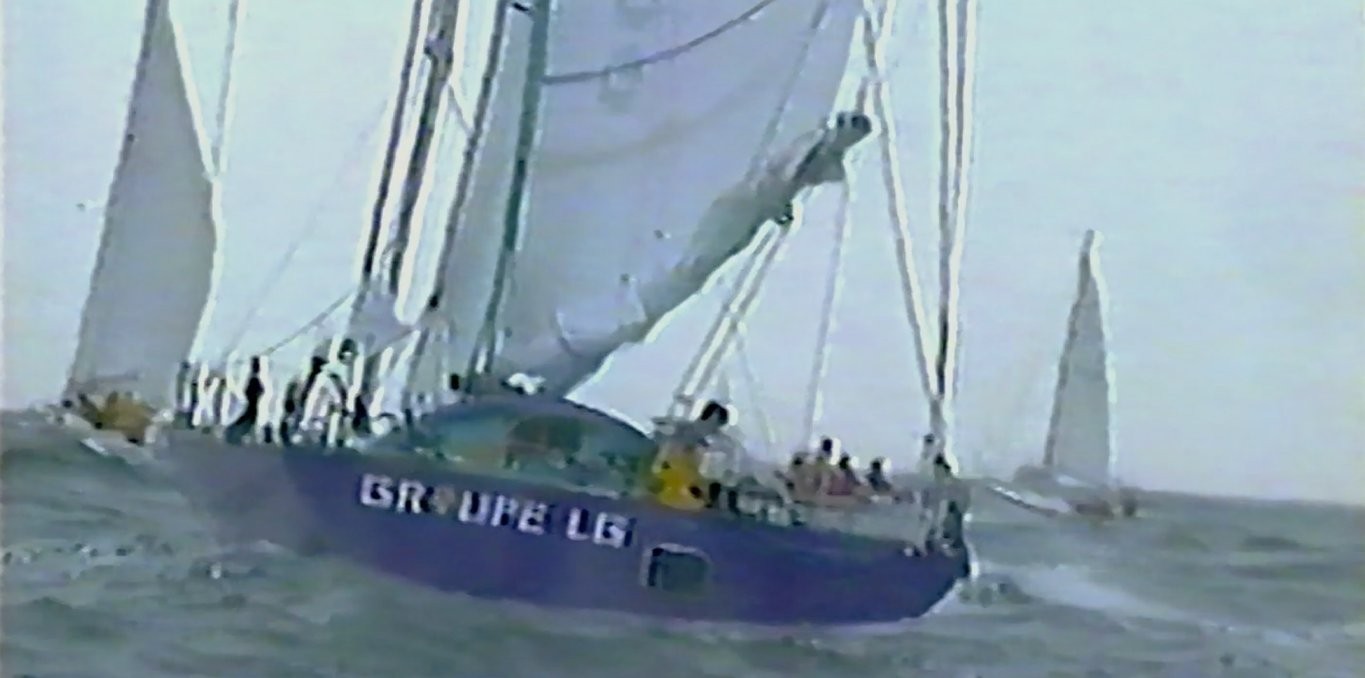Atalaya

_Atalaya_ means "watchtower" in Spanish. It’s also the name of the Chilean islands where, in 1998, debris was found from the boat belonging to the filmmaker’s seafaring father, Gerry Roufs, lost at sea. It’s also a key word of the book _Une Atalaya pour Gerry Roufs_ written by her mother, Michèle Cartier, which recounts the search she undertook to find him in 1997-1998. _Atalaya_ is the filmmaker's pilgrimage to Cape Horn, camera in hand, memories flowing through her mind. This work is an essay structured around excerpts from her mother’s book, presenting Emma’s reflections on this inevitable grief, on how memory is affected by the presence of absence, and on how life naturally follows its course.
| Director | Emma Roufs |
| Share on |
In 1997, at eight years old, Emma Roufs watched her father, sailor Gerry Roufs, set off for the Vendée Globe. She never saw him again. About twenty years later, she embarks on a journey—both across the ocean and within herself—to come to terms with this endless grief, giving images and words to the absence that shaped her. In this delicate essay, she takes us toward Atalaya, the island where the remains of the yacht were found, following the traces of her father but also of her mother, who searched for her partner at the ends of the earth.
Skillfully weaving images of the past with those of the present, guided by a voiceover marked by sobriety and restraint, Atalaya turns commemoration into a sensory quest, where the salty spray of the sea strikes us as strongly as the emotions themselves. The grain of archival footage lends a ghostly ambiguity to the faces, childhood sensory memories blend with breathtaking views of the Chilean coast, and life journeys become geography—from Brittany to Quebec, via Cape Horn… Here and there, a flower, a stone, a gust of wind, or a cat reminds us that life goes on.
Apolline Caron-Ottavi
Writer and programmer
Cinémathèque québécoise

-

Français
18 mn
Language: Français -

English
18 mn
Language: English
- Année 2020
- Pays Quebec
- Durée 18
- Producteur Emma Roufs
- Langue French
- Sous-titres English
- Résumé court A filmmaker's journey following the traces of her father, lost at sea in 1998, weaving together memory, archives, and reflections on grief.
- Ordre 3
- TLF_Applismb_CA 1
- Date édito CA 2025-10-17
In 1997, at eight years old, Emma Roufs watched her father, sailor Gerry Roufs, set off for the Vendée Globe. She never saw him again. About twenty years later, she embarks on a journey—both across the ocean and within herself—to come to terms with this endless grief, giving images and words to the absence that shaped her. In this delicate essay, she takes us toward Atalaya, the island where the remains of the yacht were found, following the traces of her father but also of her mother, who searched for her partner at the ends of the earth.
Skillfully weaving images of the past with those of the present, guided by a voiceover marked by sobriety and restraint, Atalaya turns commemoration into a sensory quest, where the salty spray of the sea strikes us as strongly as the emotions themselves. The grain of archival footage lends a ghostly ambiguity to the faces, childhood sensory memories blend with breathtaking views of the Chilean coast, and life journeys become geography—from Brittany to Quebec, via Cape Horn… Here and there, a flower, a stone, a gust of wind, or a cat reminds us that life goes on.
Apolline Caron-Ottavi
Writer and programmer
Cinémathèque québécoise
-

Français
Duration: 18 minutesLanguage: Français18 mn -

English
Duration: 18 minutesLanguage: English18 mn
- Année 2020
- Pays Quebec
- Durée 18
- Producteur Emma Roufs
- Langue French
- Sous-titres English
- Résumé court A filmmaker's journey following the traces of her father, lost at sea in 1998, weaving together memory, archives, and reflections on grief.
- Ordre 3
- TLF_Applismb_CA 1
- Date édito CA 2025-10-17


